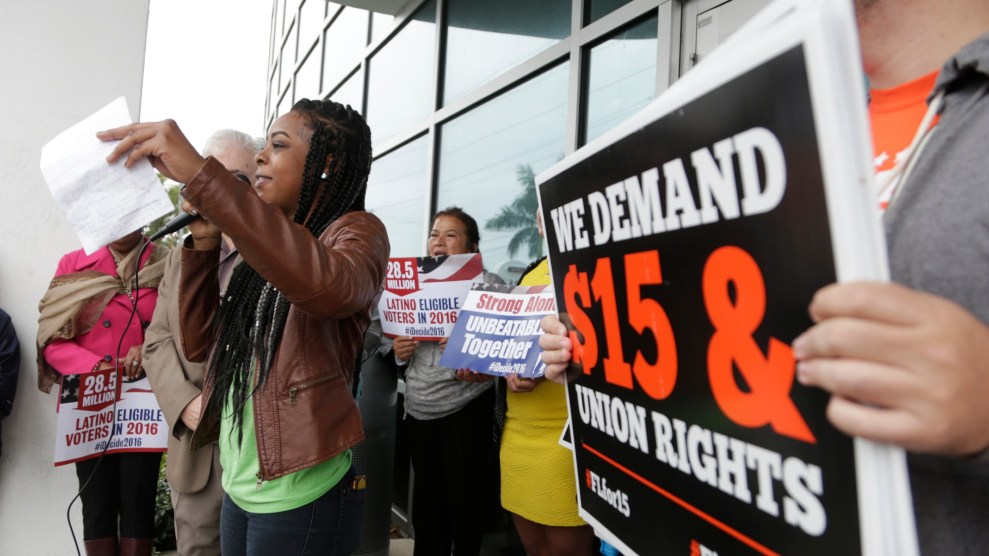
Lynne Sladky/AP
On Tuesday night, voters in the Sunshine State voted to give up to 2.5 million Floridians a raise. More than 61 percent of voters approved Amendment 2, a ballot measure that will require the state to raise its hourly minimum wage to $15 by September 2026, and to enshrine that increase in the state’s constitution.
The approved increase will nearly double the state’s current minimum wage of $8.56. The increase will happen slowly, with employers being required to add one dollar a year to wages in order to work up to the $15 minimum. The first increase will bring the hourly minimum up to $10 by September 2021.
This vote makes Florida the first state in the South to approve a $15 minimum wage—a livable wage benchmark that progressive labor groups like Fight for 15 have sought for years, and which became part of the Democratic Party’s official platform in 2016. Florida is the eighth state to approve the $15 minimum, and the first state to do it by ballot measure. The ballot measure was spearheaded by Florida For A Fair Wage and local personal injury lawyer John Morgan, who poured millions of dollars into the effort behind Amendment 2.
Both the Florida Chamber of Commerce and the Florida Restaurant and Lodging Association opposed the measure, warning that forcing employers to pay workers more would lead to fewer jobs in the state and stymie the state’s economic recovery from the pandemic. A number of economic studies have found that raising the minimum wage does not necessarily hurt employment. A 2019 study from the nonpartisan Congressional Budget Office found that raising the minimum wage to $15 could lead to a nationwide loss of 1.3 million jobs, but would increase wages for 17 million people, and lift 1.3 million out of poverty. Another study from the University of California Berkeley found that a $15 minimum wage would have no negative effects on employment.

















